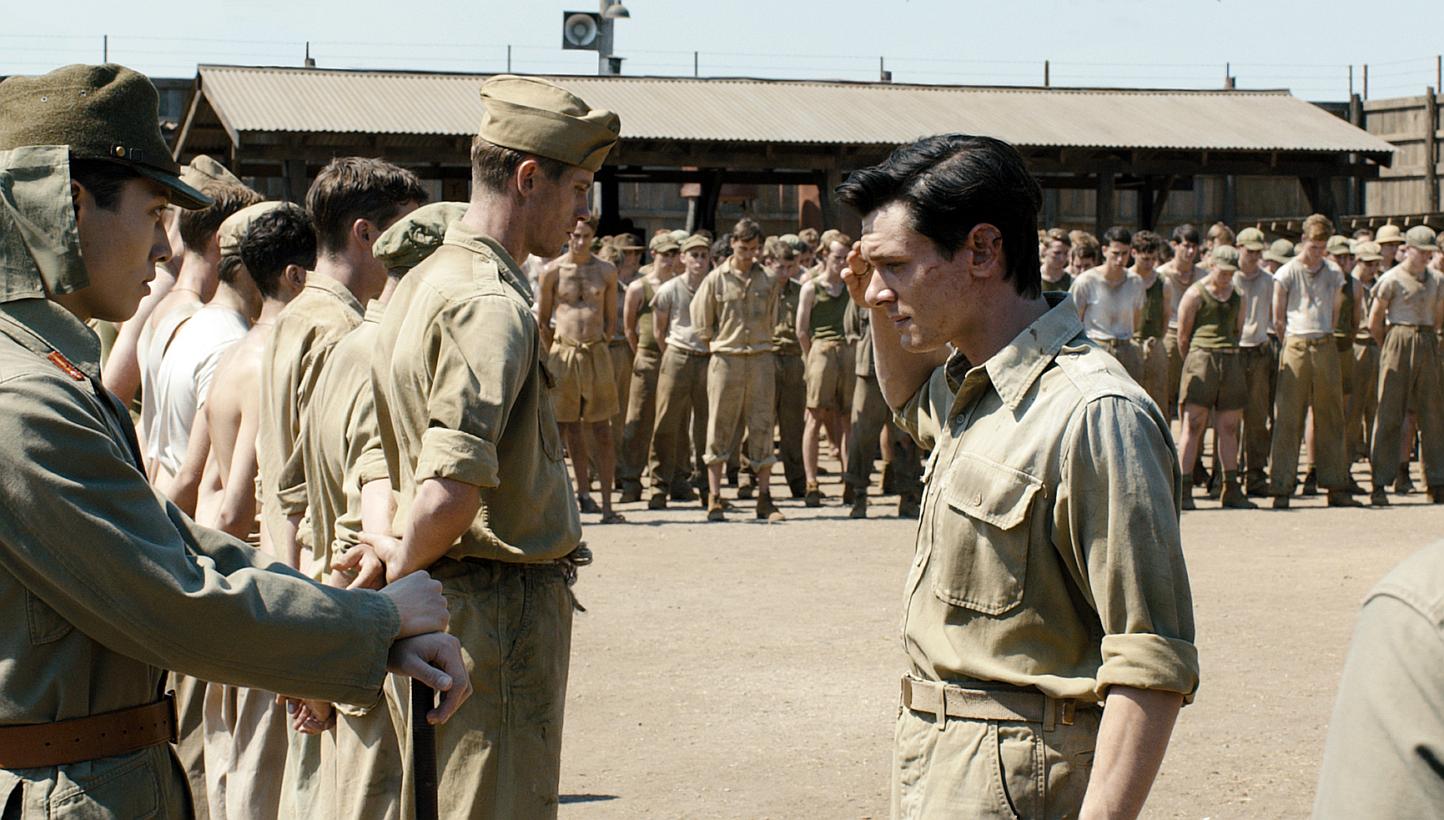Director Angelina Jolie's Unbroken lacks details
Sign up now: Get ST's newsletters delivered to your inbox

Still image from Unbroken starring Jack O'Connell, Domhnall Gleeson and Takamasa Ishihara. -- PHOTO: UIP
Review Biopic
UNBROKEN (PG)
138 minutes/Opens tomorrow/**1/2
The story: The inspirational life story of Olympic athlete, bomber pilot and former prisoner-of-war Louis Zamperini (Jack O'Connell) is adapted for the screen. Flashbacks to his childhood show him to be a bullied child of Italian immigrants. As a teen, his gift for running takes him to the 1936 Olympics. In the war, his bomber crashes into the Pacific, where he and two crewmates endure a record-breaking 47 days on life rafts. His capture by the Japanese navy puts him in a prison camp run by the cruel Mutsuhiro Watanabe (Takamasa Ishihara).
The problem here is not just that this story of triumph over adversity offers an awful lot of adversity before the eventual triumph.
Nor is it that it treats its subject reverentially, turning him into a Reader's Digest-size role model, a neat package tied with the blandest of mottos ("If you can take it, you can make it").
The movie's biggest error comes from its assumption that depiction equals explanation.
This is untrue, especially not when so much depiction is painted with the broadest of strokes.
Director Angelina Jolie and screenwriters Joel and Ethan Coen (among others) have opted to tell the story of Zamperini's life as an epic parable of an exceptional man, put through the most horrific of circumstances, yet enduring.
Oscar-nominated cinematographer Roger Deakins, a frequent Coen collaborator (No Country For Old Men, 2007, among others) delivers visuals to match the epic scale, but parables, especially epic ones, cry out for inner reflection.
Prophets and saints stumble and question their faith. They fall into despair, they rise and fall again and rail against their fate.
Fallibility never seems to trouble Zamperini. The biopic seems content to never depict self-doubt and, in so, find his humanity.
The 2010 best-selling biography on which the film is based might have omitted that aspect of the pilot's character, but that lack of insight hangs over this movie like a cloud.
In one scene, he is asked to condemn the United States in a Japanese propaganda broadcast in exchange for housing outside the prison camp, but he says no and that is that.
The best prison-camp movies bring to life the battle of wills between captor and captive.
Actors Ishihara (better known as rock musician Miyavi) and O'Connell perform some psychological interplay but, once again, the lack of detail and the lack of willingness on Jolie's part to go deeper make the scenes feel like little more than historical re-enactments.

